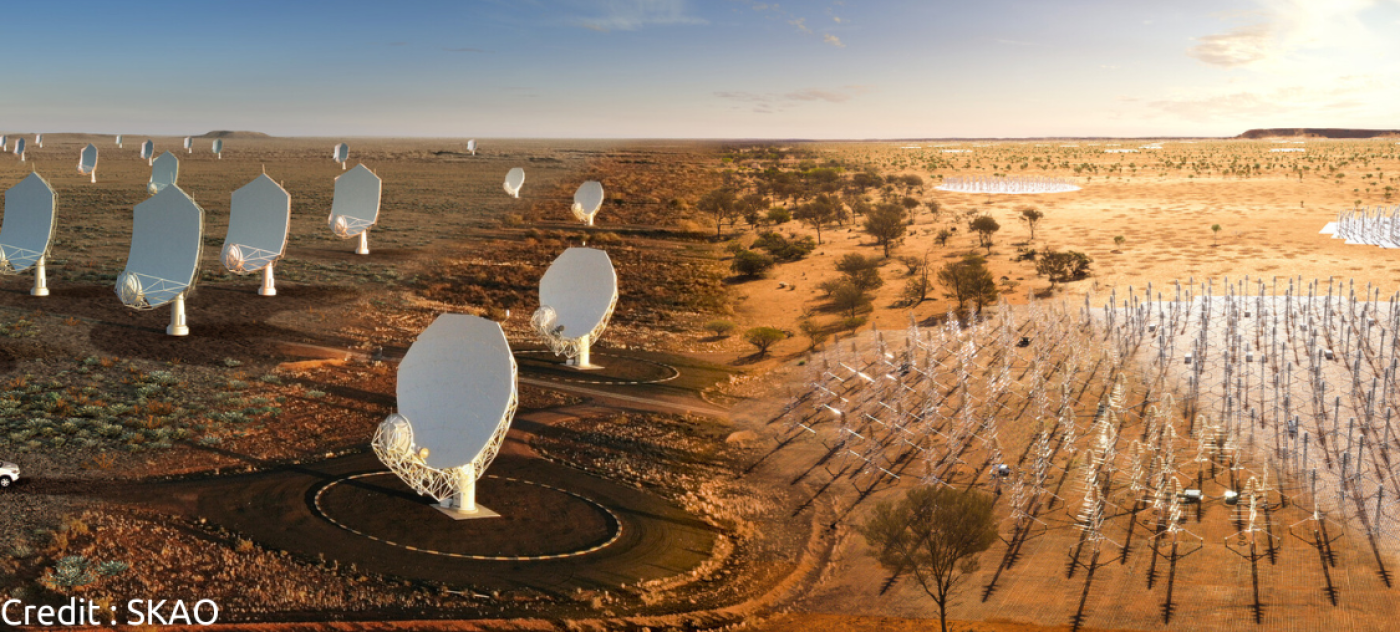(Ottawa, ON) June 3, 2024 – The Digital Research Alliance of Canada (the Alliance) has signed a $34.7M contribution agreement with the National Research Council of Canada (NRC) to deliver critical astronomy research infrastructure. Over the span of this eight-year agreement, the NRC and the Alliance will work together with national host sites to elevate domestic and international astronomy research and enable Canada’s membership in the Square Kilometre Array Observatory (SKAO).
The Square Kilometre Array (SKA) is a long-term, international endeavour to build and operate the largest radio telescopes in the world. The SKA will include two complementary arrays of radio telescopes in South Africa and Australia. Both arrays will use interferometry to provide remarkable detail about the universe, enabling research into previously inaccessible domains such as the inner workings of galaxies and extreme environments around black holes. Researchers in Canada have been integral in the design of the SKA telescopes and the development of key technologies that will enable the pan-national array.
Major infrastructure upgrades are needed, and through the contribution agreement with the NRC, the Alliance will support the expansion of Canadian Advanced Network for Astronomy Research (CANFAR) to create an SKA Regional Centre (SRC) and increase astronomy research capacity in Canada overall.
Canada is in a uniquely advantageous position to develop and deploy an SRC. The NRC’s Canadian Astronomy Data Centre (CADC) and the Alliance are encouraged by over 10 years of partnership and close working connections within our technical teams, and a running start at the University of Victoria thanks to the CADC’s strong relationship with the Arbutus team. The first stages of building an SRC in Canada are already underway, and we look forward to the next seven years of collaboration and improved digital research infrastructure for astronomy researchers in Canada and around the world.
Quotes
“Signing this agreement with the NRC marks a significant milestone in our commitment to advancing world-class research infrastructure. Canada’s membership in SKAO is a culmination of decades of previous work, demonstrating a national commitment to collaboration and the realization of the SKA. By leveraging our strong partnerships and technical expertise, the Alliance is creating the environment to equip our researchers with the tools and opportunities needed to lead scientific discoveries.”
- George Ross, CEO of the Digital Research Alliance of Canada
“The National Research Council of Canada plays a leading role in Canada’s international astronomy partnerships, supporting scientific discovery and innovation in instrumentation for the astronomy community. Our membership in the Square Kilometre Array Observatory is the result of decades of collaboration between many Canadian organizations and international governments. Canada’s contributions to defining and designing the new observatory are significant, and Canada’s participation in SKAO will open doors to ground-breaking discoveries, cutting-edge technologies and societal benefits that will teach us more about the universe we live in.”
- Mitch Davies, President, National Research Council of Canada
Quick Facts
- Canadian astronomers have been involved with the SKA for over 40 years, defining the fundamental science and necessary technologies. Canada was one of the six founding nations of the initial SKA consortium.
- Canada is committed to creating and hosting an SRC, which will handle 6% of the global SKA processing needs including storage, compute capacity, and services such as user support.
- SKAO is expected to generate about 700 PB of scientific data per year - enough to fill up 1 million average laptops!
Related links
For more information about this initiative, please contact: [email protected]
